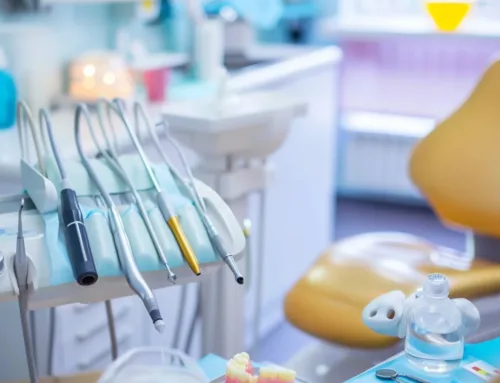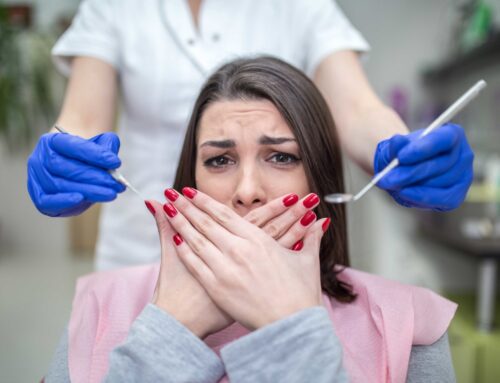Beware of These 5 Recent Dental Fads
People need to be careful of how they approach their oral health. There are a lot of different treatments, procedures and products being advertised and a lot of articles promoting the latest fads. It’s important to work with your dentist to cut through the white noise as the last thing you want is to get caught up in a craze that will impede your oral health.
Recently, a handful of fads have grown in popularity despite their efficacy being called into question. Often, these fads fall under the trend of “dental hacks”, which are practices and strategies designed to supposedly improve their oral hygiene in the most efficient way possible. Unfortunately, many simply do not work.
To help you save money on unproven products and not waste your time at the expense of proper oral hygiene, we’ll outline five trends to avoid. We’ll start by helping you differentiate between a fad and a trend and then breakdown some recent fads and why they might do more harm than good.
Fad vs. Trend
People often use the words “fad” and “trend” interchangeably. By not knowing the difference between the two, you could adopt an endless amount of oral health products or practices that don’t work.
Trends have a much longer lifespan, often lasting years or decades. Additionally, they tend to be based more on need than want. The foundation of trends usually involves the alteration of a classic, like a mouthwash with natural ingredients. In dentistry, it’s typically okay to jump on a trend though it’s always best to clear it with your dentist first.
A fad is short-lived. In fashion, a fad could last one season. In technology, it could be a single generation. They tend to come and go and keeping up with each can be exhausting. Worst of all, many do not deliver what they promise. When it comes to your health, you don’t want to rely on fads, most of which are suspect or have not undergone rigorous testing.
With respect to your oral hygiene, try to only use products that have been validated by the Canadian Dental Association (CDA), an organization dedicated to the promotion of oral health and to the advancement of dentistry. We recommend looking for products with the CDA seal on it.
5 Dental Fads to Avoid
Now that you can spot the difference between a fad and a trend, it’s important to recognize certain recent fads that we believe do not deliver. Most importantly, if you come across a video or article proclaiming to have discovered the latest “dental hack”, take it with a grain of salt.
Oil Pulling
Oil pulling is rinsing with a tablespoon of coconut oil for 15-20 minutes every day. This technique promises to improve bad breath and reduce yellow staining on teeth.
Fans claim that this method has been in practice for 3,000 years but it’s difficult to prove the validity of that claim. Furthermore, the use of oil pulling by ancient civilizations could have been out of necessity. After recognizing the importance of teeth, resources to care for them were limited. The fact that early societies couldn’t just order toothpaste off Amazon, doesn’t make oil pulling a good option.
Oil pulling does not clean the bacteria out of your mouth. If you insist on making oil pulling part of your oral hygiene routine, make sure you continue to brush and floss regularly.
Since there’s no scientific basis to believe that coconut oil benefits teeth in any way, it wouldn’t be surprising to see this fad disappear very soon.
Charcoal toothpaste
It’s hard to surf the internet without coming across an ad for charcoal toothpaste. It looks strange to watch someone clean their teeth with thick slabs of black paste and then proclaim how well it works as a whitening agent.
Toothpaste should protect the hard, outer surface of teeth known as enamel. Charcoal toothpastes, on the other hand, are abrasive and, if used regularly, can cause enamel to deteriorate over time. Consider that enamel is only about a millimetre thick. This means that any degree of erosion can be dangerous to a person’s oral health.
This product can initially whiten teeth but there are some serious consequences. It’s never a good idea to sacrifice enamel for the sake of removing stains from your teeth. The whiteners offered by most dentists are safe and much more effective. Most contain peroxide, which does not impact enamel.
Fluoride-Free Toothpaste
Fluoride is a proven preventative measure against tooth decay. Today, in many parts of the world, fluoride is added to the water supply to strengthen teeth and to increase their resistance to cavities.
While fluoride is found in most toothpastes and mouthwashes, there are some brands that offer fluoride-free options. Since fluoride is a known cavity fighter, these toothpastes don’t provide much value with respect to oral hygiene.
Skip this fad unless you intend to leave your teeth susceptible to decay or want to make additional visits to your dentist to have your cavities treated.
Rinsing with Hydrogen Peroxide
Hydrogen peroxide in a common ingredient in many whitening products but only in specific doses. Because of its connection to dentistry, many people have taken to rinsing with only hydrogen peroxide.
Small amounts of this chemical compound can remove stains from teeth but large quantities can harm your gums. It’s okay to buy products with hydrogen peroxide but look for the CDA seal on the packaging. This means that the dosage is based on the parameters approved by a governing body.
A good rule to follow is that you should never use unadulterated chemicals for any part of your oral hygiene routine. Chemicals needs to be processed, treated and handled by scientific professionals to create safe products.
We recommend sticking to natural and organic products to avoid any issues altogether.
DIY Whitening Agents
Teeth whitening seems to attract a slew of fads as people want pearly whites without paying for expensive cosmetic treatments. One homemade concoction that people have taken to is to mix lemon juice and baking soda to create a whitening agent.
Lemon juice is extremely acidic. Combining it with abrasive baking soda means you are exposing your teeth to two different elements that can strip away enamel.
You can also add apple cider vinegar to the list of natural products that shouldn’t be used to whiten teeth. While it can aid in digestion and is proven to make hair shinier, it’s abrasive properties can damage enamel and, believe it or not, make teeth yellower.
It’s always a good idea to use natural and organic products but you don’t want to harm your teeth. Enamel doesn’t grow back so be sure to care for it and keep it strong for the long run. Remember, once the layer of dentin that enamel protects becomes more visible, you could experience pain, discomfort and a variety of dental issues.
Contact Us Today!
We hope this information helps you steer clear of these fads. Furthermore, it’s best to recognize a fad at its onset before you do damage to your teeth and gums.
If a dental fad sounds too good to be true, it probably is. If in doubt, always consult your dentist for advice. At Georgian Dental®, we are always happy to discuss your oral health and to help you understand ways to safely improve your teeth and gums.
Appointment Request
If you’re interested in any of our procedures, and would like to meet with one of our dentists to discuss options, costs and get additional information, complete this short form and we’ll give you a call to arrange for a no-obligation appointment at our Barrie clinic.










